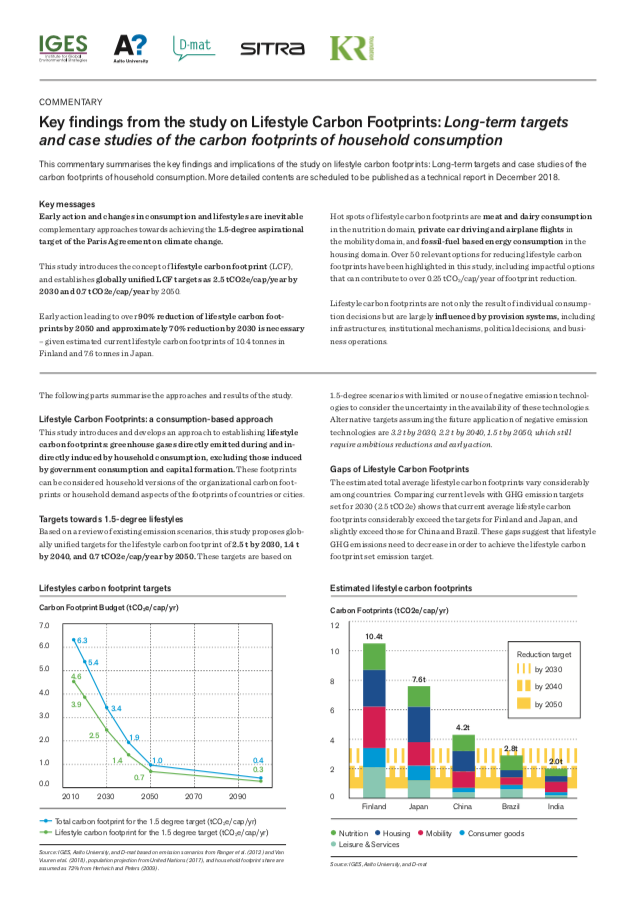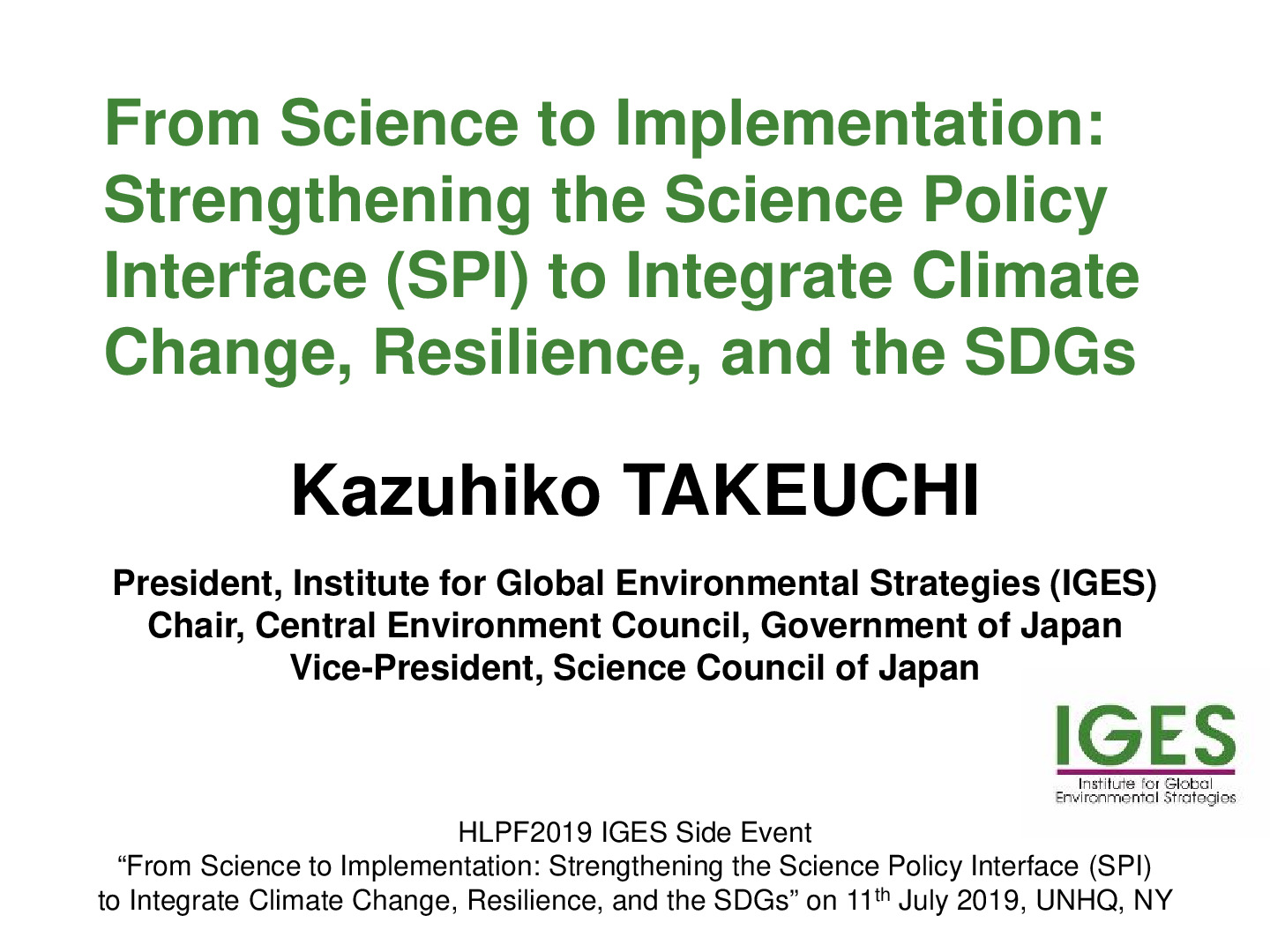This report demonstrates that changes in consumption patterns and dominant lifestyles are a critical and integral part of the solutions package to addressing climate change. The report fills a gap in the existing research by establishing global targets for lifestyle carbon footprints, examining current consumption patterns and their impacts on...
- Clear all
- Topic: (-) Environmental Safeguards
- Topic: (-) Sustainable Societies
- Region/Country: (-) Denmark
- Region/Country: (-) South America
- Region/Country: (-) Western Europe
Results 1 - 8 of 8 (Sorted by date)
This commissioned report presents the major outcomes of the project that aimed to set up a joint research project on urban transformation in collaboration with International Institute for Applied Systems Analysis (IIASA) and to hold an international symposium to present the research outcomes in Tokyo, with the aim of contributing to the special...
Keywords:
This report summarises the findings of the following OECD initiatives that are particularly useful in considering the integrated implementation of domestic measures in Japan: the latest developments in OECD work on the environmental aspects of responsible corporate behaviour; the latest IPAC developments and good practices in climate policy; and...
Keywords:
Japan is a member of the International Institute for Applied Systems Analysis (IIASA), known for its contributions to the computational modelling of acid rain and the Intergovernmental Panel on Climate Change (IPCC). In line with the Ministry of the Environment's contribution to IIASA from 2011, IGES has assumed the secretariat of the national...
Keywords:
This commentary summarises the key findings and implications of the study on Lifestyle Carbon Footprints: Long-term targets and case studies of the carbon footprints of household consumption. This study introduces and develops an approach to establishing lifestyle carbon footprints: greenhouse gases directly emitted during and indirectly induced by...
HLPF2019 IGESSide Event “From Science to Implementation: Strengthening the Science Policy Interface (SPI) to Integrate Climate Change, Resilience, and the SDGs” on 11thJuly 2019, UNHQ, NY
HLPF2019 IGESSide Event “From Science to Implementation: Strengthening the Science Policy Interface (SPI) to Integrate Climate Change, Resilience, and the SDGs” on 11thJuly 2019, UNHQ, NY
途上国の森林減少・劣化に由来する温室効果ガス排出の削減等(以下「REDD+」という。)は重要な気候変動対策であり、気候変動に関する国際連合枠組条約の第21回締約国会議(COP21)で合意された「パリ協定」にもその実施と支援を奨励することが明記されたところである。 REDD+の推進には、途上国に対する資金と技術の提供が必要とされているが、公的資金には限界があることから、今後、REDD+の取組みを拡大していくには、民間セクターからの資金や技術の提供が鍵となる。しかしながら、民間セクターがREDD+に対して投資するには、排出削減クレジットが獲得できる等のインセンティブが必要(①)とされる。また、途上国がREDD+を実施するには、COP決定を踏まえつつ、各々の国情に応じた排出削減量の算定...



